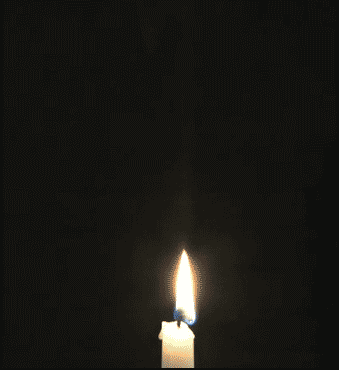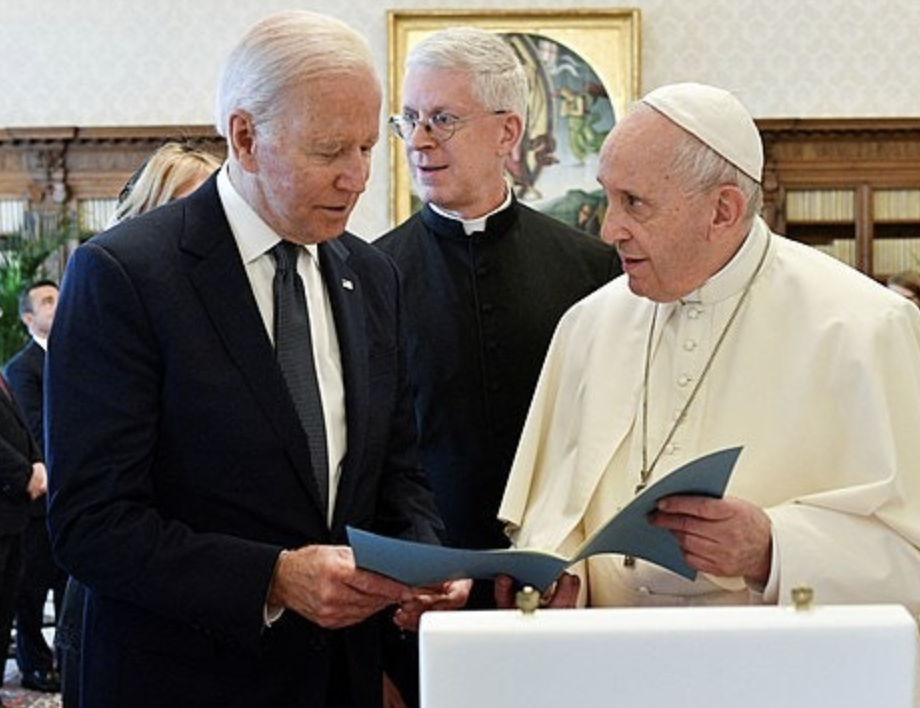It was hard to ignore the papal bull condemning the slave trade, which was read to American Catholic leaders gathered in Baltimore in 1839.
Pope Gregory XVI proclaimed that "no one in the future dare to vex anyone, despoil him of his possessions, reduce to servitude, or lend aid and favor to those who give themselves up to these practices, or exercise that inhuman traffic by which the Blacks, as if they were not men but rather animals, having been brought into servitude, in no matter what way, are, without any distinction, in contempt of the rights of justice and humanity, bought, sold and devoted sometimes to the hardest labor."
Nevertheless, the first bishop of Charleston, S.C., attempted to soften the blow. Quoting scripture and Catholic doctrine, Bishop John England wrote a series of letters arguing that the pope didn't mean to attack those -- including Catholics -- who already owned slaves.
"Bishop England was not a bad man. He was not personally in favor of slavery, nor was he a racist," noted Father John Raphael of New Orleans, at a rally organized as an alternative to the University of Notre Dame's graduation rites.
"In fact, Bishop England exercised a cherished and personal ministry to black Catholics," he added. "But in the face of strong, anti-Catholic sentiment and prejudice, he simply wanted to show his fellow antebellum Southerners that Catholics could be just as American as everybody else and that tolerance of their cherished institution -- slavery -- was not in any way opposed by the Catholic church."
It was wrong for Catholics of that era to seek any compromise on slavery, stressed Raphael, who serves as principal of St. Augustine High School, one of Louisiana's most prominent African-American institutions. It is just as wrong, today, for Catholic leaders to compromise on abortion. At least the slaves were allowed to live, to be baptized and to receive the sacraments, he said.
The symbolism was obvious, since the priest is a prominent African-American graduate of Notre Dame.
The symbolism was more than obvious, since he was speaking at a rally protesting Notre Dame's decision to grant President Barack Obama an honorary doctor of laws degree, clashing with a U.S. Catholic bishops policy that states: "Catholic institutions should not honor those who act in defiance of our fundamental moral principles. They should not be given awards, honors or platforms which would suggest support for their actions."
The Mass and rally on Notre Dame's south quad followed hours of prayers in the university's Alumni Hall and famous Marian grotto. These solemn, peaceful events received little media attention, even though they drew several hundred or several thousand participants, depending on who did the counting, as well as 25 Notre Dame faculty members, 26 graduating seniors and Bishop John D’Arcy of the Catholic Diocese of Ft. Wayne-South Bend. A louder standoff between police and 100 off-campus activists -- led by anti-abortion leader Randall Terry -- received most of the news coverage.
During the actual commencement address, a few protesters yelled, "Stop killing our children." Most of the graduates booed the protesters, then chanted, "Yes we can," Obama's campaign slogan, and "We are ND" as they were removed.
Notre Dame President John Jenkins stressed that Obama accepted Notre Dame's invitation knowing that "we are fully supportive of church teaching on the sanctity of human life and we oppose his policies on abortion and embryonic stem cell research."
"President Obama is not someone who stops talking to those who differ with him," stressed Father Jenkins. Then he added, "Mr. President, this is a principle we share."
Meanwhile, many of the speakers at the "Notre Dame Rally for Life" openly criticized Obama's policies, but consistently focused their harshest words on the actions of the current Notre Dame administration.
"Faith without works is dead, words without actions are meaningless," said Father Raphael. "If, as we have been told, a dialogue is actually taking place … between the presidents of Notre Dame and the United States, between the university and the nation, then, for the university at least, that dialogue must be shaped by truth and charity, and protecting the sanctity of all human life, as the church understands life, must be its goal. …
Actively building a culture of life at Notre Dame must become central to the university's witness and mission to the nation and to the world."








